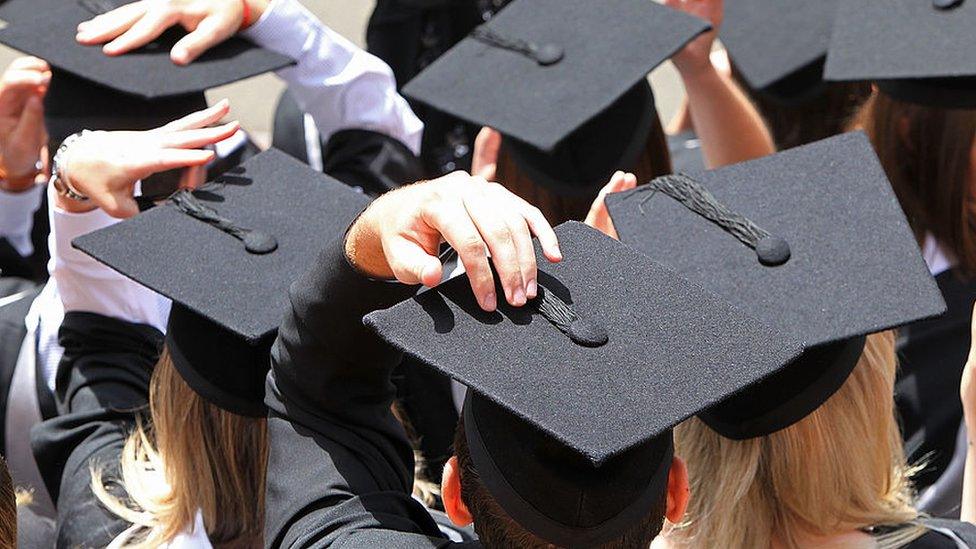Top degrees fall for the first time in a decade
- Published
- comments
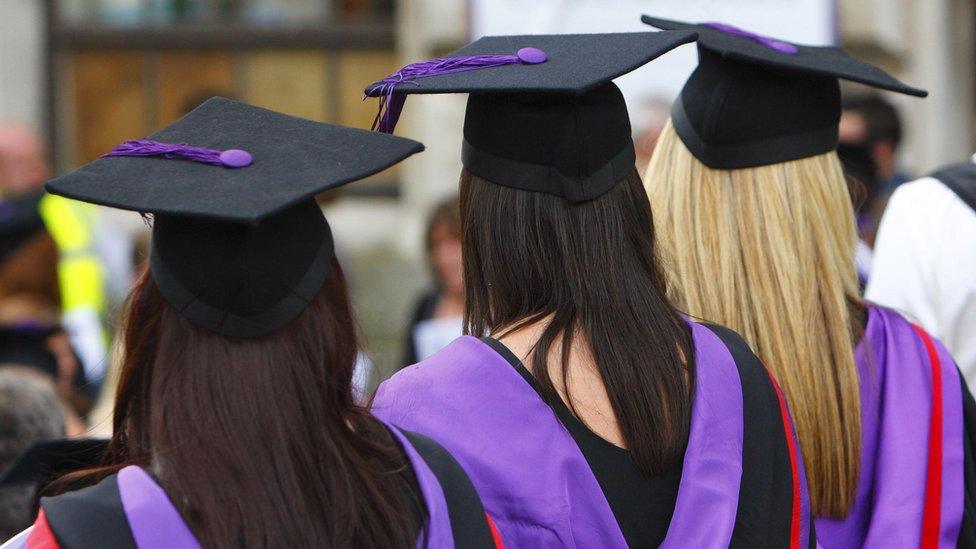
The proportion of students in England awarded first-class degrees has fallen for the first time in over a decade, the university watchdog says.
The Office for Students (OfS) says 32.8% achieved top grades in 2021-22, down from 37.4% in 2020-21.
But the percentage remains higher than before the Covid pandemic and concerns remain about the overall increase since 2010-11, when it was 15.5%.
Universities say they are "committed to addressing unexplained increases".
The National Union of Students (NUS) said it "regrets" students were having "doubts cast upon their achievements".
Universities UK, which represents 140 institutions, said they were "rowing back on increases that occurred during the pandemic".
In a statement, it referred to guidance it has published, external on how universities should classify degrees to "protect the value of qualifications".
The fall in the proportion of top grades in 2021-22 coincided with many universities ending "no detriment" or "safety net" policies designed to protect grades from being negatively impacted by disruption during the pandemic.
The policies often meant students' grades were based on their performance up until the pandemic.
The OfS report does not analyse the impact of policies and guidance.
It does look at whether differences in students' "characteristics" from year to year might explain the long-term rise in first-class degrees - such as their A-level or equivalent grades or choice of subject.
But OfS chief executive Susan Lapworth said half of first-class degrees remained "unexplained".
'Hard work'
"We are encouraged to see a reduction in the proportion of unexplained top grades but universities and colleges know that they need to continue to take the steps necessary to protect the value of their qualifications, now and over time," she said.
"We recognise there are likely to be a range of factors - including improved teaching - that could lead to an increase in the number of firsts awarded.
"But the sustained increase in unexplained firsts and [upper seconds] since 2010-11 continues to cause us concern."
Universities UK said universities "remain committed to addressing unexplained increases in their degree-classification awards" but the research "must be careful not to assume that those with lower entry grades, typically from more disadvantaged backgrounds, cannot achieve first-class degrees".
"Some of the improvements are certain to be attributable to increased investment into teaching from universities and the hard work of students," it added.
Chloe Field, of the NUS, said it "regrets the suggestion that students who have worked hard, received quality teaching from excellent staff and have achieved good results have doubts cast upon their achievements".
This "distracts from the real problems" in higher education, such as the cost of living, she added.
Grade inflation
The OfS report comes as some students face delays receiving their grades this summer because of a marking boycott by staff.
The University and College Union says it could affect more than half a million graduations.
More than half the universities that responded to a survey by the Universities and Colleges Employers Association (UCEA), said some of their students would be affected. The UCEA estimates that 13,000 students - 2.6% of final-year graduates - will be affected
Universities are taking independent decisions about how to minimise the impact, so the effect on students will vary.
Grade inflation - especially since the pandemic - has also been a concern for schools and colleges.
The proportion of top GCSE and A-level grades in England, Wales and Northern Ireland in 2022 was lower than 2021 but still higher than before the pandemic.
Ofqual says it expects this year's GCSE and A-level results to be similar to 2019.
Related topics
- Published20 April 2023
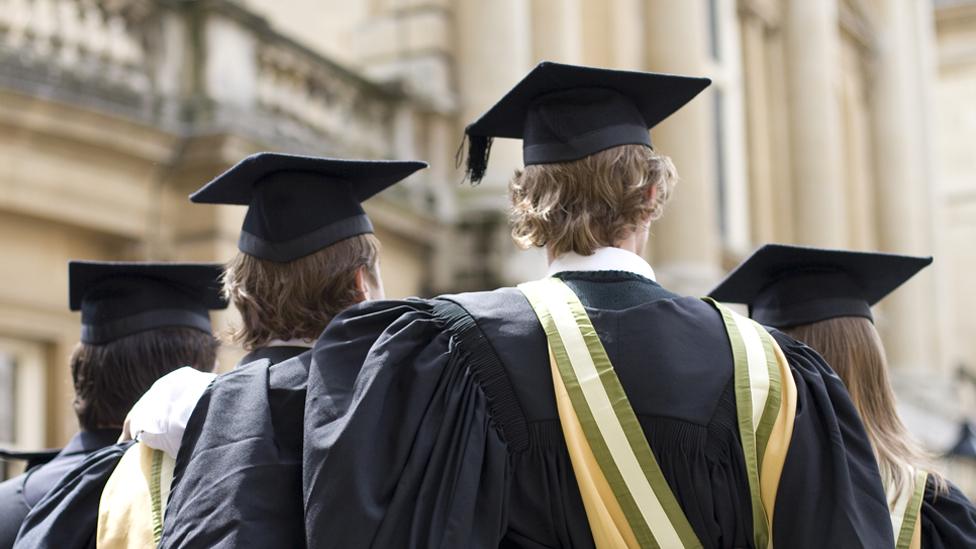
- Published20 October 2023
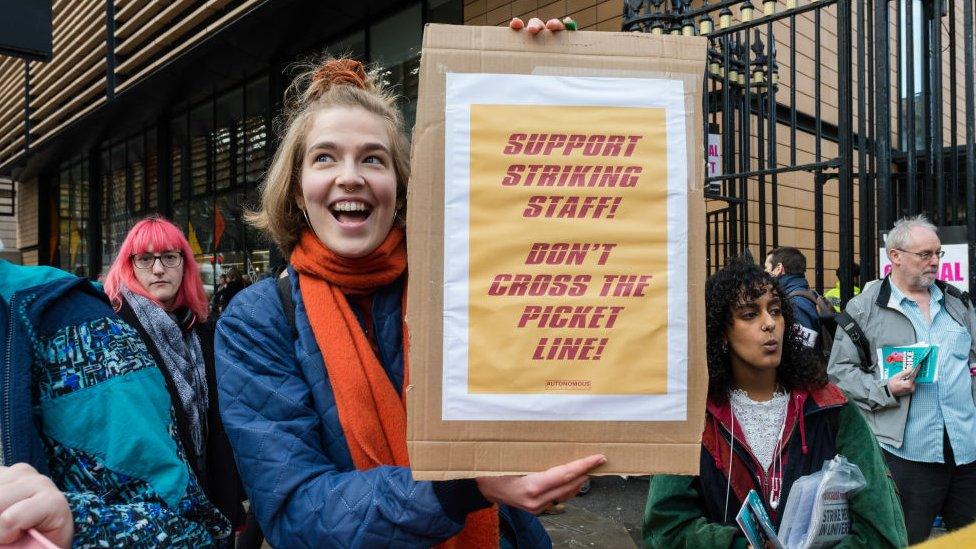
- Published25 August 2022
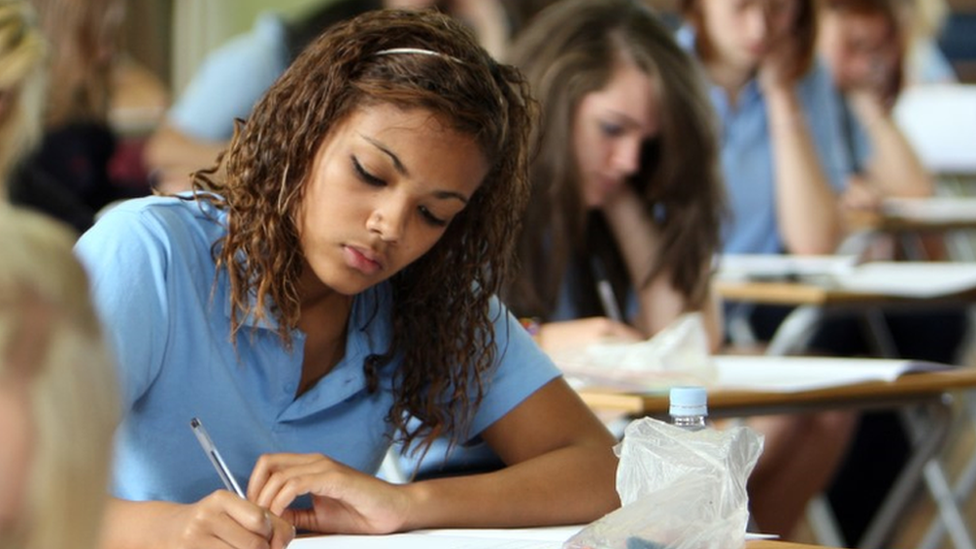
- Published18 August 2022
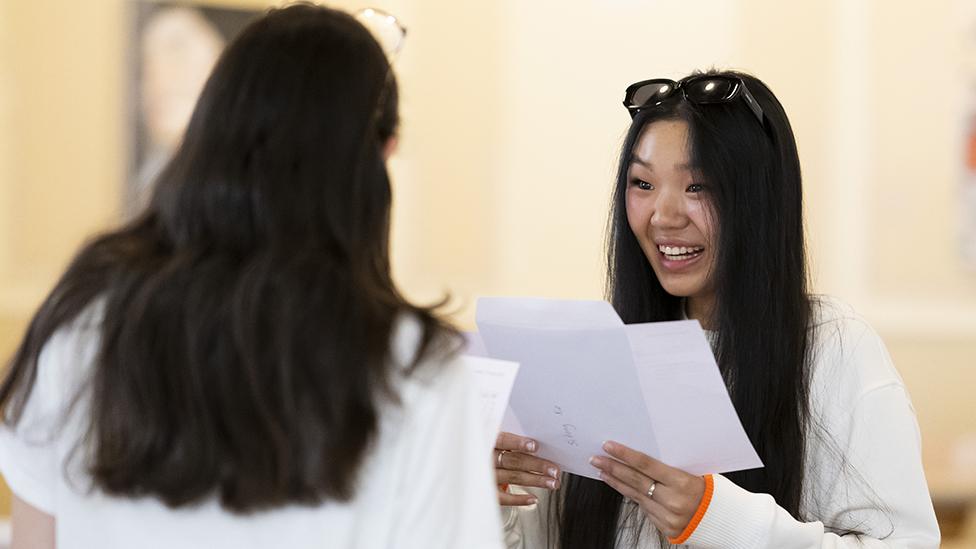
- Published12 May 2022
